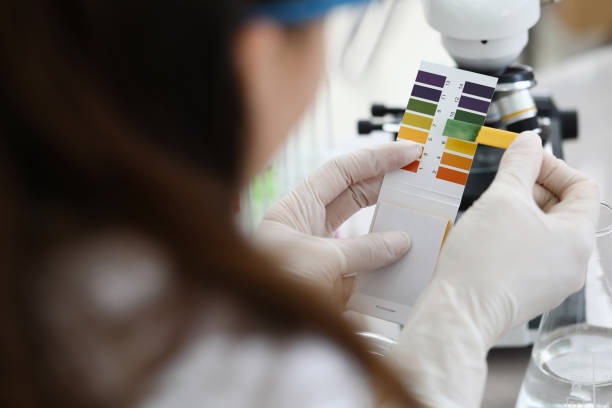
EXPERT-SUPERVISED QUESTIONNAIRE TEST
Expert-Supervised Application Questionnaire Test: Comprehensive Product Evaluation with a Multidisciplinary Approach
The Application Questionnaire Test is an important method used to evaluate the effects, performance, and reliability of cosmetic products and certain medical devices on real users. The Expert-Supervised Application Questionnaire Test takes this methodology further by incorporating a multidisciplinary approach that includes physicians from different specialties in addition to dermatologists. In this way, not only the dermatological effects of the product but also, depending on the claimed effect of the product, the gynecological, ophthalmological, allergic, pediatric, geriatric, or urological effects are comprehensively evaluated.
Test Methodology and Expert Involvement:
This test method follows a similar methodology to the basic Application Questionnaire Test. However, depending on the claimed effects of the product and the target audience, physicians from relevant specialties are also included in the test.
Dermatologist: The primary expert of the test. Evaluates the effects on the skin, tolerance, and safety. Essential for all application tests.
Gynecologist: Evaluates the safety and efficacy of products applied to the vaginal area (lubricants, moisturizers, intimate cleansers, etc.).
Ophthalmologist: Evaluates the safety and efficacy of products applied around or into the eyes (eye creams, contact lens solutions, eye drops, etc.).
Allergist: Evaluates the potential of the product to cause allergic reactions. Especially important for products developed for sensitive skin.
Pediatrician: Evaluates the safety and efficacy of products intended for use on infants and children (shampoos, creams, lotions, etc.).
Family Physician/General Practitioner: Observes and evaluates the effects on general health. They can play a role, especially in products that appeal to a broad user base or products that may have systemic effects (e.g., transdermal drugs).
Urologist: Evaluates the safety and efficacy of products affecting the urological area (urinary incontinence products, male hygiene products, etc.).
Geriatrician: Evaluates the safety and efficacy of products intended for use by elderly individuals (skincare products, incontinence products, etc.).


Test Phases and the Role of Experts:
Product and Claim Evaluation: The content, claimed effects, and target audience of the product to be tested are examined. Accordingly, the areas of expertise to be included in the test are determined.
Subject Selection and Information: A group of 30 subjects, generally suitable for the target audience of the product, is selected for the test. Characteristics of the subjects such as age, gender, skin type/general health status are recorded. Subjects are given detailed information about the test process, product use, and potential risks, and their written consent is obtained.
Initial Examination: Relevant expert physicians examine the subjects before the test and evaluate their suitability for the test. For example, a dermatologist evaluates the skin type and condition, while a gynecologist may perform a gynecological examination.
Product Application and Usage Process: Subjects use the product according to the instructions for a specified period (usually 35 working days, approximately 7 weeks).
Interim Evaluations and Observation: During the test period, subjects are regularly checked by expert physicians, and the effects of the product are observed. Necessary interventions are made in case of any adverse reactions or side effects.
Objective Measurements: Depending on the claimed effects of the product, objective measurements can also be taken. For example, skin moisture can be measured with a Corneometer, skin elasticity with a Cutometer, and wrinkle depth with a Visioline. In the case of eye contour products, additional evaluations such as intraocular pressure measurement and visual acuity tests can be performed by an ophthalmologist.
Subjective Evaluation (Questionnaire): At the end of the test period, subjects fill out a detailed questionnaire, sharing their subjective opinions and experiences about the product.
Final Examination and Evaluation: Expert physicians re-examine the subjects at the end of the test and evaluate the effects of the product.
Data Analysis and Reporting: All data obtained (expert opinions, objective measurements, questionnaire results) are analyzed using statistical methods and presented in a detailed report. This report includes comprehensive information about the product's safety, efficacy, and user experience.
Technical Requirements and Considerations:
Sample Size: 30 samples of each product are required to obtain statistically significant results and to provide each subject with a separate product.
Test Duration: 35 working days (approximately 7 weeks) is sufficient to observe the effects of most cosmetic products. However, this period may vary depending on the type of product, the claimed effects, and the areas of expertise involved.
Expert Physician Fees: A separate fee is charged for each expert physician included in the test. This fee is determined according to the physician's area of expertise, role in the test process, and time spent.
Ethics Committee Approval: In necessary cases, it is important to obtain ethical committee approval for the test.
Contact Us to Start Your Expert-Supervised Questionnaire Test Process.
We offer affordable and effective solutions tailored to your needs.
The information presented on this website does not constitute legal advice and is intended for informational purposes only. KompassEurope.com.tr assumes no responsibility for any errors or omissions in the information contained on this website. Any decisions made or actions taken by the reader based on this information are solely at the reader's own risk, and KompassEurope.com.tr shall not be held liable for any legal consequences arising from such decisions or actions. Readers are strongly advised to seek professional legal counsel regarding their specific circumstances and concerns.
© 2025 Kompass Europe. All rights reserved. The contents of this website belong to Kompass Europe and are protected by copyright laws. Copying, publishing, distributing or any commercial use of the information on the website is possible only with written permission. By using this site, you agree to our Terms of Use and Privacy Policy.
